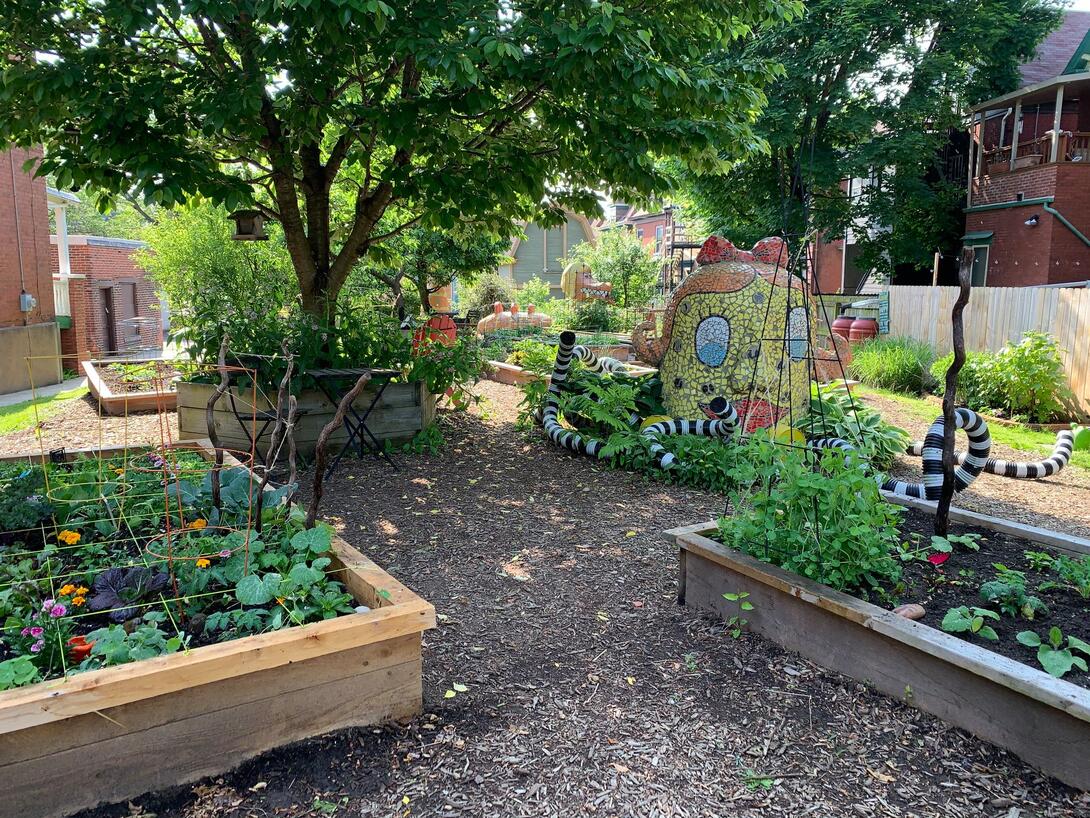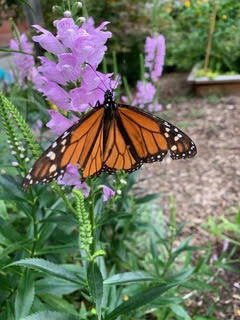Kristin Hughes Named 2022 Aggie Brose Award Winner

“It is not often that a building behind your home burns down, and you have the means to purchase the land. But that is what happened to me,” said Kristin Hughes, a Professor at Carnegie Mellon University's School of Design. This is how Hughes began her work at Octopus Garden, a landmark in the Friendship neighborhood of Pittsburgh. Kristin Hughes is a 2022 honoree of the Aggie Brose Award for her excellence in community activism. The Aggie Awards celebrate local work that contributes to a “safe, educated, and empowered community”.
Hughes recounted how it began. “A large apartment complex behind my house burned down one evening. I happened to be standing on the sidewalk at 5:30 AM and asked the gentleman beside me, “I wonder what they are going to do with this building?” After discussing the building and the vacant lot next door with the owner, the seeds were planted for a space that encourages a positive atmosphere within Friendship.

“The Octopus Garden officially took root in 2009 and, over time, transformed from an impermeable vacant lot into raised garden beds and soft ground, supporting life in many and often unexpected ways.” Octopus Garden has lush raised beds for gardening, but invites anyone to interact with it whether or not they are growing vegetables. Through its art installations, communal seating, and openness, it encourages visitors to exist in a space that cares about cultivating a communal and sustainable environment.
Octopus Garden has whimsical art that is full of character and provides a lively spot in the community. “Octavia the Octopus and Doris the Sea Monster are important art features in the Garden,” said Hughes. “Pittsburgh-based artist Laura Jean McLaughlin created both of these charming beauties with neighbors’ help. Octavia, the Garden’s namesake, holds court in the center of the Garden, visible to all who pass by.” One of the features, Doris the Sea Monster, interacts with the local weather – when it rains, it sprays the rain water out onto flowers and other plants in the garden.
Hughes did not anticipate the garden’s eventual presence in its local community. “For years it was not a desirable place,” she said. “I think now most neighbors couldn’t imagine Friendship without the garden.” Now, the garden welcomes hundreds of people each year, and has been recognized in various ways, such as participating in the Pittsburgh Home and Garden Tour, Friendship House Tour, and other events. It was also named one of Rick Seback’s ‘25 Things That He Likes About Pittsburgh.’ All events are free and maintained by the community, which is a testament to how much care Hughes’ Octopus Garden has contributed to its neighborhood.

When asked about her commitment to working locally, Hughes mentioned a quote by Geoff Mulgan, a renowned social design innovator: “Some of the most important innovations evolve in a zig-zag line with their end uses are very different from those originally envisaged. Sometimes action precedes understanding. Sometimes doing things catalyzes the ideas. There are also feedback loops at every stage, making real innovations more like multiple spirals than straight lines.” This has served as an inspiration to the way in which Hughes contributes to her community.
For over twenty years, the heart of Hughes’ work has been dedicated to learning, social design, and placemaking. “Through the ongoing work and the people with whom I have had the privilege of working, form these multiple spirals which continue to propel me to discover new areas of inquiry, seek partnerships outside of the discipline and build authentic relationships with communities, so engagement lasts overtime.” Hughes commitment to building true relationships with communities she serves allows her work to have a meaningful impact within the locale. Her background in communication design and art gives her a strong toolkit that allows her to craft solutions at all stages of the design process. “All this exemplifies the slow but fruitful work of designing for social change.”